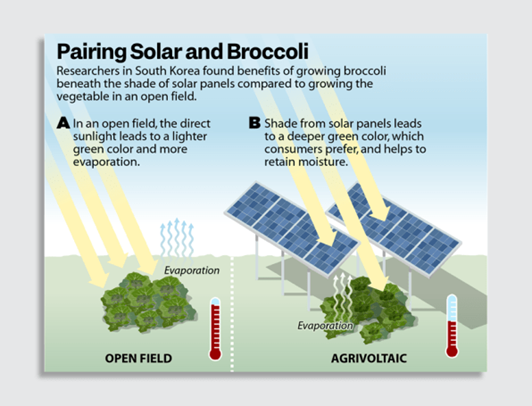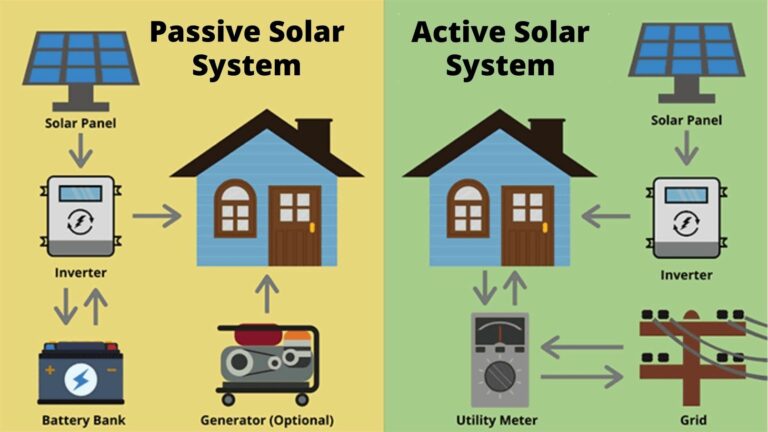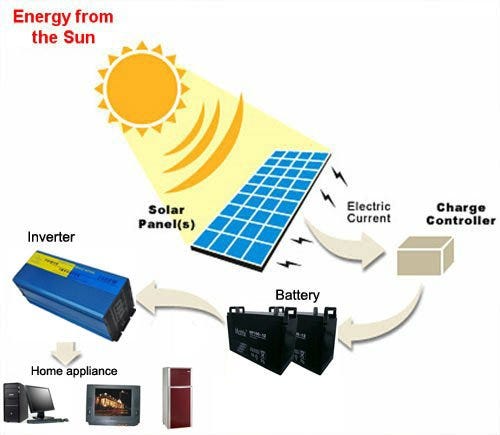How Does Solar Energy Affect The Environment?
Welcome to the world of solar energy! Have you ever wondered how solar power can impact the environment? Well, you’re in the right place. In this article, we’ll delve into the exciting topic of how solar energy affects the environment and why it’s an eco-friendly choice.
Harnessing the power of the sun offers a myriad of benefits that go beyond just generating electricity. Solar energy is a renewable and clean source of power, meaning it doesn’t produce harmful emissions or contribute to climate change. With solar panels, we can collect the sun’s energy and convert it into electricity without polluting the air or water.
But that’s not all! Solar energy also helps reduce our dependence on finite fossil fuels, such as coal and natural gas. By embracing solar power, we can conserve these precious resources, ensuring a brighter and more sustainable future for generations to come. So, let’s dive deeper into the positive impacts of solar energy on our environment.

How Does Solar Energy Affect the Environment?
Solar energy is a renewable and clean source of power that is gaining popularity worldwide. As more and more people are turning to solar energy, it’s important to understand the impact it has on the environment. In this article, we will delve into the various ways in which solar energy affects the environment and explore its benefits, as well as any potential drawbacks.
The Basics of Solar Energy
Solar energy is derived from the sun’s rays and can be harnessed using solar panels. The panels are made up of photovoltaic cells that convert sunlight into electricity. This process is known as the photovoltaic effect. Solar energy is sustainable and helps reduce our dependence on non-renewable sources of energy such as fossil fuels. Let’s explore the environmental impact of solar energy in more detail.
The Reduction of Greenhouse Gas Emissions
Solar energy plays a crucial role in reducing greenhouse gas emissions, which are a major contributor to climate change. When we use solar energy instead of electricity generated from fossil fuels, we prevent the release of carbon dioxide (CO2) and other harmful gases into the atmosphere. These gases trap heat in the Earth’s atmosphere, leading to global warming and a host of negative environmental impacts. By shifting to solar energy, we can significantly decrease our carbon footprint and combat climate change.
Solar energy is a green and sustainable source of power. Unlike fossil fuels, solar panels do not release any greenhouse gases during operation. Furthermore, the manufacturing process of solar panels has also become more environmentally friendly over the years. The industry has made efforts to reduce its carbon emissions and water usage, making solar energy an even more sustainable option.
Additionally, the use of solar energy reduces the need for traditional power sources, which often require large-scale mining and drilling for fossil fuels. These extraction activities lead to habitat destruction and water pollution. By transitioning to solar energy, we can protect the Earth’s natural resources and ecosystems.
Preserving Water Resources
Traditional power generation methods, such as coal and natural gas, require a significant amount of water for cooling and steam generation. This leads to the depletion of freshwater sources, causing water scarcity and environmental issues. Solar energy, on the other hand, requires minimal water usage. The only water needed is for cleaning the solar panels, which can easily be done with rainwater or recycled water. By utilizing solar energy, we can conserve water resources and alleviate the strain on water ecosystems.
Solar energy systems also have the potential to be integrated with water management systems. For example, solar-powered irrigation can help optimize water usage in agriculture, reducing water wastage and improving overall efficiency. This integration of solar energy with water management can have a profound positive impact on the environment, particularly in regions facing water scarcity.
It’s important to note that the manufacturing of solar panels does require some water usage. However, advancements in technology have led to significant reductions in water consumption during the manufacturing process, making solar energy an even more sustainable option for water conservation.
Reducing Air Pollution
One of the most significant benefits of solar energy is its ability to reduce air pollution. Traditional forms of energy generation, such as the burning of fossil fuels, release harmful pollutants into the atmosphere. These pollutants include sulfur dioxide, nitrogen oxides, and particulate matter, which contribute to respiratory illnesses, smog, and other detrimental health effects.
Solar energy, on the other hand, produces electricity without any emissions or air pollution. By switching to solar energy, we can improve air quality and protect our respiratory health. This is especially important in densely populated areas and cities where air pollution levels are high. Additionally, solar energy plants can be strategically located away from residential areas, reducing the negative impact on local communities.
Furthermore, solar energy systems operate silently, without creating noise pollution. Traditional power generation methods often involve noisy machinery and equipment, which can disturb wildlife and human populations. Solar energy helps to create a quieter and more peaceful environment, benefiting both humans and wildlife.
Conclusion and Key Takeaways
Solar energy has numerous positive effects on the environment. It reduces greenhouse gas emissions, preserves water resources, and decreases air pollution. By harnessing the power of the sun, we can mitigate climate change, conserve water, and improve air quality. Transitioning to solar energy is a crucial step towards a sustainable and eco-friendly future.
As individuals, we can contribute to the adoption of solar energy by installing solar panels on our rooftops or supporting renewable energy initiatives. Governments and policymakers should also prioritize the expansion of solar energy infrastructure and invest in research and development to make it even more accessible and cost-effective.
By harnessing the power of the sun, we can create a cleaner, healthier, and more sustainable planet for future generations. Let’s embrace solar energy and pave the way for a brighter future.
Key Takeaways: How Does Solar Energy Affect the Environment?
- Solar energy is a clean and renewable source of power.
- The use of solar power helps reduce greenhouse gas emissions.
- Solar panels do not produce air or water pollution during operation.
- Solar energy reduces our dependence on non-renewable fossil fuels.
- Using solar power can help slow down climate change.
Frequently Asked Questions
Welcome to our FAQ section on how solar energy impacts the environment. Below, we have answered some common questions related to this topic. Discover the positive effects of solar energy and its contribution to a greener future.
1. How does solar energy reduce greenhouse gas emissions?
Solar energy reduces greenhouse gas emissions by replacing the need for fossil fuel-based electricity generation. When solar panels convert sunlight into electricity, there are zero carbon dioxide (CO2) emissions associated with the process. In contrast, conventional power generation methods, such as burning coal or natural gas, release significant amounts of CO2 that contribute to climate change. By utilizing solar energy, we can decrease our reliance on fossil fuels and mitigate the harmful effects of greenhouse gas emissions on the environment.
In addition to reducing CO2 emissions, solar energy also reduces other air pollutants that adversely affect our health and the environment. Traditional power plants emit various pollutants like sulfur dioxide, nitrogen oxides, and particulate matter. These pollutants contribute to respiratory problems, smog, and acid rain. By transitioning to solar energy, we can improve air quality and create a more sustainable future.
2. How does solar energy conserve water?
Solar energy helps conserve water resources in two ways. First, traditional power plants that rely on fossil fuels consume vast amounts of water for cooling purposes. From extracting and refining fuel sources to generating electricity, water is used extensively throughout the process. In contrast, solar panels do not require water for their operation. By embracing solar energy, we can reduce the strain on water resources and ensure its availability for other essential needs.
Secondly, the production of solar panels itself requires significantly less water compared to the manufacturing of conventional energy systems. The production of coal, natural gas, and nuclear energy requires substantial amounts of water for mining, processing, and cooling. In contrast, solar panels have minimal water requirements during manufacturing. This water conservation aspect further contributes to the positive environmental impact of solar energy.
3. How does solar energy impact wildlife?
Solar energy has several positive impacts on wildlife compared to conventional energy sources. One significant advantage is that solar energy infrastructure, such as solar farms, can be designed and installed while preserving wildlife habitats. Unlike other energy sources that require large-scale mining or infrastructure development, solar panels can be mounted on rooftops, unused land, or implemented as floating solar arrays on bodies of water. These installations have a minimal footprint and allow the natural habitats of wildlife to remain undisturbed.
Furthermore, solar farms do not produce noise pollution or emit harmful chemicals that could negatively affect wildlife. Conventional energy sources, such as fossil fuel power plants, contribute to noise pollution and emit pollutants that can harm both terrestrial and aquatic organisms. By transitioning to solar energy, we can minimize disturbances to ecosystems, protect wildlife habitats, and promote a healthier environment.
4. Can solar energy cause any negative environmental impacts?
While solar energy has numerous environmental benefits, it is important to acknowledge potential negative impacts associated with its production and disposal. The manufacturing process of solar panels involves the extraction and processing of raw materials, which may have environmental consequences if not managed properly. The extraction of minerals and other resources for solar panels can result in habitat destruction, water pollution, and carbon emissions. However, efforts are being made to improve the sustainability of the production process and mitigate these potential negative impacts.
In terms of disposal, solar panels have a long lifespan, often exceeding 25 years. After their useful life, they need to be properly recycled to avoid any environmental harm. Solar panel recycling is becoming more established, but it is essential to ensure that proper recycling practices are followed to minimize any potential negative impacts on the environment.
5. How does solar energy contribute to a greener future?
Solar energy plays a vital role in creating a greener future by reducing our reliance on fossil fuels. It is a renewable energy source, meaning sunlight is abundant and will not deplete over time. Solar energy systems generate electricity without consuming finite resources, ensuring a sustainable energy supply for generations to come.
By transitioning to solar energy, we can significantly reduce greenhouse gas emissions, air pollutants, and water consumption associated with conventional energy sources. Solar power also contributes to energy independence, as it can be harnessed in remote locations where it is difficult to access traditional power grids. With ongoing advancements in solar technology and greater adoption of solar energy, we can pave the way towards a cleaner, more sustainable future for our planet.
Summary
Solar energy is a great option because it is clean and doesn’t produce harmful emissions. It helps reduce air pollution and slows down climate change. Solar panels need sunlight to produce electricity, but they can still work on cloudy days. While solar energy does have some drawbacks, such as the initial cost and the need for large open spaces, its benefits for the environment make it a promising renewable energy source.
In conclusion, solar energy is a positive choice for the environment. It reduces pollution and has the potential to slow down the effects of climate change. Although it has a few limitations, the advantages of solar energy outweigh the disadvantages. So, let’s embrace solar power and help create a greener and more sustainable future.



